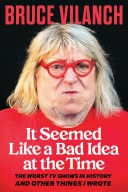womenswork: I Say Read "She Said"
- Kelly Watt
- Nov 2, 2019
- 3 min read
Updated: Nov 3, 2019
I just finished reading the book She Said by Jodi Kantor and Megan Twohey, the Pultizer Prize winning narrative of their brilliant investigative journalism on the Weinstein sexual harassment case, and a timeline of how they encouraged and supported his victims to go on the record. It is chilling reading and so very important. Perhaps one of the most important books I’ve read this year. I think every woman should read it. It’s important, not just because of the fascinating profile they share of a powerful man who flagrantly and violently abused his power, but because the book charts a blueprint for social change. Indirectly they outline that process-- the initial isolation of the victims, the first rebellions as women tried to fight back, the pushback the women faced as they spoke out, then later they show how the women gathered together, shared their stories, and reached out and how that reaching out gave them to fight the harassment, bullying and denial that greeted their demand for justice. Years ago, the activist Jeanne Sarson once said to me, “This is the process of change. Change is always met with resistance initially.” That comment helped me not take it all so personally, when my first disclosures were met with denial, disbelief, or outright shaming. I was even more impressed when I got to the end of She Said and discovered that while Kantor and Twohey were writing this book, they were also living ordinary married lives, having babies and doing the women’s work of “changing diapers, bottle feeding and sleep training” all while working grueling hours.
What moved me most were the individual stories, the long torturous journeys each woman went through to speak her truth and find some form of justice. Many of Weinstein’s victims left their jobs or the industry altogether after his bullying, forever traumatized by the event. It goes to show how long lasting the effects of violence, particularly sexualized violence, can be. I thought the journalists handled the womens' stories with frankness and compassion. The back of the book is full of accolades and quotes, which you can read for yourself but while I was reading the book I kept turning down the corners of the pages, so that my copy now looks well loved. Some of my favourites: “He counted on my shame to keep me silent,” she said. “He was pathologically addicted to conquering women,’ she said. “Why are we not speaking out?” she said. What’s interesting about these statements, is that they could be said of almost any predator, and particularly this past year’s most famous two: Epstein and Weinstein. And that is another reason why the book resonates so strongly.

Three quarters of the way through the book shifts focus to Christine Blasey Ford and her testimony at the Brett Kavanagh hearings. I was annoyed by this shift at first, so caught up in the Weinstein web by that point, I wanted to learn more about what happened to him, wanted to see him suffer, or pay in some way for his transgressions. But of course, there was no conclusion at the time the book was published. Weinstein is facing multiple sex related charges and still awaiting trial in January, and is free to at large in the New York area for now. When confronted by a survivor at charity event for young actors a few weeks ago, it was the hysterical actors who were asked to leave. So there is no happy ending yet.
As I read on, in She Said I understood why they included both stories. The two stories are interwoven. One person's speaking out, makes possible the next, and the next, and so on creating a domino effect. This is what the Buddhists would call “interdependence.” We do nothing in a vacuum. The agony the shy, retiring Ford went through over whether to speak or not and when and how to speak and to whom, touched me deeply, as it was something I struggled with too for many years. Kantor and Twohey don’t flinch either about the personal costs Ford endured as a result of her bravery. The sad truth is there is no happy ending yet to either of those tales of bravery. I take my hat off to any woman who tells, who comes forward, in whatever way feels safe for her in the moment. I applaud Jodi Kantor and Megan Twohey, two brave journalists and their supporters at the NYTimes, who made the telling happen and actually matter, even a little.



Comments